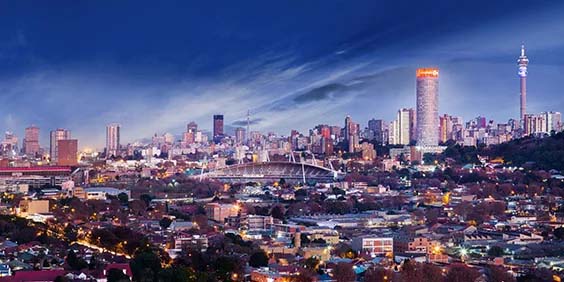Sustainable Development: Small, Medium And Micro Businesses Can Help Deliver Africa’s Sustainability Promises

Gareth Stokes (Africa Ahead)
Individuals and small, medium and micro-enterprises (SMMEs) will play a huge part in achieving national and continental sustainability outcomes, especially in developing economies. According to Kyle Durham, head of sustainable finance and ESG solutions at FNB, sustainability will be a big deal for small businesses.
In a thought leadership article, Mr Durham set out to dispel the myth that sustainable development and climate action were the exclusive domain of governments and large businesses. FNB is one of South Africa’s largest retail banks with ZAR35.7bn in normalised earnings in its 2022 reporting year, and servicing more than 10-million active customers with a staff complement of 48,000.
“It is not hard to see why this misperception exists,” writes Mr Durham. “Because the sheer enormity of the task of achieving the 17 UN Sustainable Development Goals (UN SDGs), coupled with budget discussions involving billions and even trillions of dollars, leaves most individuals and small businesses doubting the value of any contribution they could make towards building a more sustainable world.”
Need evidence to support this comment? Just consider one of the many reports published soon after the Conference of Parties (COP27), in this case a joint effort by the governments of Egypt and the UK. The publication suggested that international investments of US1trn or more per annum would be needed by 2030 to achieve climate action in developing countries, excluding China. South Africa’s Just Energy Transition plan, meanwhile, requires a staggering ZAR1.1trn to achieve.
It is easy for smaller players to get discouraged by large numbers, yet they have a critical role to play. Mr Durham explained: “Without the commitments of individuals and communities real sustainable development will not be possible; and when you consider that small and medium enterprises (SMEs) make some of the largest contributions to economic growth and job creation in most countries, it is clear that they have a vital role, and an absolute responsibility, to champion the sustainability cause in all their business dealings.”
It makes perfect sense that individuals and small businesses will underpin an economy’s climate transition. After all, to use a clunky metaphor, the Great Wall of China was not built by the ruling class, but by the consistent effort of thousands of individual craftsman.
FNB is adamant that sustainability goes beyond responsibility to include opportunity. It adds that failing to recognise and understand both these sides of the sustainability debate could be the downfall of the uninformed SME. Durham expanded on this concept under three headings as follows (quoted from his piece):
First: SMEs have a growing role to play in the ESG aspirations of large organisations
The massive importance of ESG factors for businesses, especially large and listed organisations, means that most of these companies need to build relationships with suppliers and business partners that support and enable their ESG aspirations. This is having a notable effect on procurement practices, many of which are being transformed to ensure that goods and services are acquired from businesses that can demonstrate a strong sustainability commitment.
Much as has been the case with BEE, it’s likely that big businesses are increasingly going to be needing to demonstrate that their supply chains are made up of companies that are as committed as they are to sustainable development. It’s vital for SMEs to get ahead of this trend and establish strong sustainability credentials, not just to avoid the risk of losing business, but also to have access to the growing number of opportunities that a demonstrable sustainability commitment will bring.
Second: more and more customers expect sustainability from your businesses
As Africa’s consumer base becomes steadily younger, it is also becoming increasingly sustainability conscious. Customers are no longer content with simply shopping for the cheapest product or service, they are becoming highly discerning in terms of where they are prepared to spend their money. And they are choosing businesses that demonstrate a sincere commitment to using their resources to build a better world.
What’s more, the immediacy of social media, and the growing impact its growing cohort of influencers has on markets, means a business that doesn’t live up to the sustainability commitment expectations of
today’s consumers can quickly find itself out in the cold. Of course, the opposite is also true, which is why becoming sustainability minded, irrespective of what line of business you are in, just makes sound business sense.
And third: It is not a cost but an investment in the future
Many smaller businesses still suffer under the misguided belief that being sustainable is simply too expensive. Unfortunately for them, the real cost of failing to integrate sustainability into their businesses is much higher than the relatively minor investment required to do so.
What is needed is a significant paradigm shift. When you consider that your business can only be sustainable if your markets are as well, it becomes clear that sustainability is not a cost, it’s an investment. Without a resilient, inclusive, and self-sufficient society, businesses would quickly run out of customers. So, helping to build that resilient society should be at the heart of every business plan. It’s not a cost centre, it’s a source of value – and every business needs to be tapping into it.
Mr Durham makes three excellent points, to which Africa Ahead would add that sustainability has become non-negotiable for local SME’s very survival. And ironically, it is the overreliance by SMEs on the state-owned energy producer, Eskom, for electricity that could yet become the sustainability game changer.
South Africa’s main energy producer – often criticised for is heavy reliance on coal-fired generation – is teetering on the brink of total collapse. During 2022, Eskom subjected the country’s citizens and businesses to more than 200 days of loadshedding, cutting between two and 10 hours of electricity supplied to consumers on each of those days.
Through the first 17 days of 2023, loadshedding has been pegged at between Stage 4 and Stage 6, meaning no electricity for between 7.5 and 10 hours daily. Under this constraint, local SMEs are rushing to implement solar solutions, thus driving the country’s sustainable energy generation capacity higher.
“The bottom line is that the achievement of meaningful sustainable development cannot just be left up to large corporates and national governments,” concluded Mr Durham. “It is a responsibility shared by every citizen in the world, and that definitely includes small and medium businesses”.
The only concern that Africa Ahead would bring up is that many SMEs are struggling with adverse trading conditions brought about by high inflation and interest rates. And South African firms, in particular, are already struggling to keep going as the domestic energy crisis bites.
To illustrate: KFC and Nando’s, both popular chicken restaurants, have started closing or reducing services at branches countrywide due to the aforementioned power supply disruptions. Some energy-intensive industries can simply not replace stable baseload with solar and wind.





